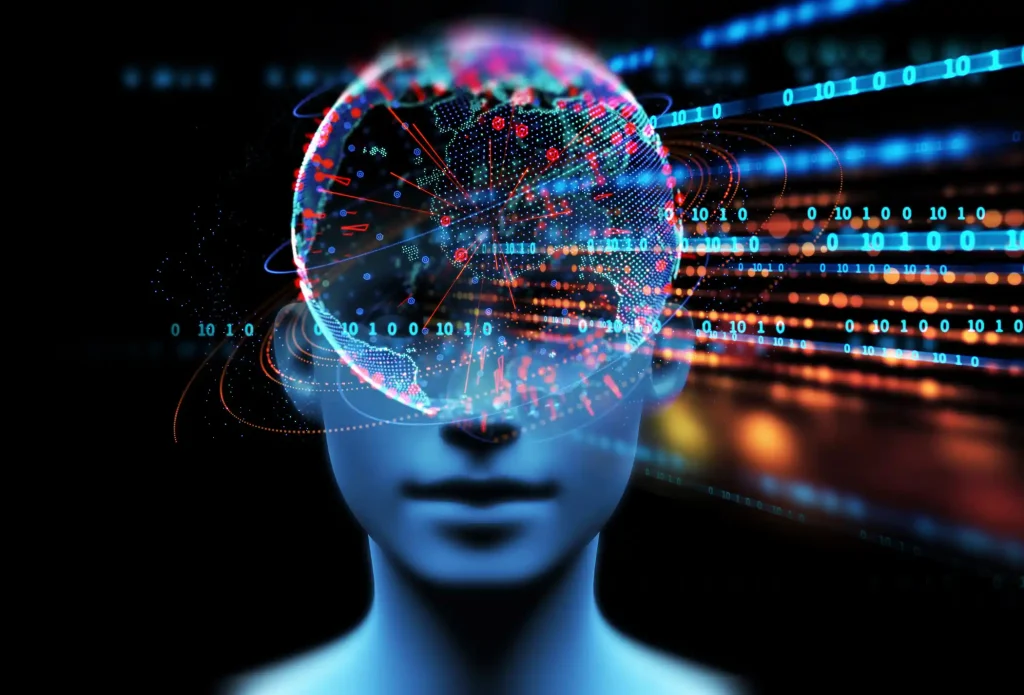Google’s Veo 3 model brings creative production to the desktop
Google’s recent unveiling of its Veo 3 video generation model clearly demonstrates that artificial intelligence is now a serious rival to human creativity—not just in text but also in visual content. This breakthrough marks a major turning point not only for the tech world but for all creative industries. AI’s ability to generate rich visual descriptions has advanced to the point where content can now be produced without a camera or set. With just a few lines of description, the system can generate high-resolution videos, possessing the power to upend production workflows across sectors from advertising to entertainment. Until now, narrative, aesthetics, and atmosphere were crafted exclusively by humans. Now, these elements are increasingly under algorithmic control. This development clearly shows that AI is no longer just a source of information—it has become a creative force. It also signals the democratization of aesthetic production, making it possible for creators without access to expensive resources to dream big.
Search engines are no longer for finding—they’re for solving
But this is only the beginning. AI’s generative role goes beyond imagery—it is redefining the flow of information itself. In the coming years, written, visual, and audio content creation may converge into a single process. As a result, speed, personalization, and automation will dominate communication in ways we’ve never seen before.
SEO is being redefined by Search Generative Experience
Google is also transforming its search engine into an AI-centered tool. This represents a fundamental shift in one of the internet’s core infrastructures. With its experimental Search Generative Experience (SGE), Google now delivers summarized, source-based AI-generated answers instead of traditional links. In this new paradigm, users no longer navigate to knowledge—they receive it directly. This change will fundamentally disrupt conventional SEO logic. As AI-generated responses replace link-based results, the purpose of content creation will also shift. Content will no longer be written for Google’s algorithms, but in a way that AI can interpret and summarize. This signals a new era of simplicity, clarity, and contextual optimization in language. This new era will force content creators to target not only their readers but also the AI that acts as an intermediary. In effect, a new kind of “editor” now sits between the writer and the reader: artificial intelligence.

Industries are already feeling the impact
The sectoral effects of these disruptions are already being debated. From academics to marketers, journalists to creators, everyone is searching for ways to adapt to this new communications architecture. Writing for algorithms requires a very different skill set than writing for humans.
AI is reshaping video and media production
Fields like video production, content marketing, journalism, and publishing will be among the first to transform. These sectors were already close to full digitization and relied heavily on repetitive processes. AI-assisted video production—without the need for studios or production teams—will reduce labor costs while giving small businesses a competitive edge. The entire process, from concept to publication, can now be completed on a single device. This development will also deeply affect the freelance economy. Creators will feel pressure to produce more content in less time, as efficiency becomes the new standard.

In knowledge-based professions, AI is no longer a rival but an alternative
Even more striking is that AI has already become a legitimate alternative in knowledge-based professions. And this isn’t just a theoretical possibility—real-world systems prove it. In diagnostic-heavy fields like internal medicine, many AI models offer more consistent diagnoses and more rational treatment plans than newly graduated doctors. This isn’t just about efficiency; it means faster and more affordable care for patients. Especially in developing countries, this offers massive potential to bridge the healthcare workforce gap. However, it also raises issues of ethics, safety, and oversight. Who is responsible when an algorithm makes a mistake? How do we ensure transparency in AI-driven decisions? These questions remain unanswered.
Human skills are still essential in some sectors
So, which sectors remain beyond AI’s reach—or at least will be the last to transform? This question is key to understanding the pace of change. Not all industries are affected at the same time. Sectors that rely on direct human interaction remain more resistant to change.
Transformation is slower—but inevitable—in service industries
Food service, repair, hairdressing, and real estate still depend heavily on human skills. Mastery, intuition, and social interaction remain crucial in these fields. Of course, automation is creeping into these areas as well. But in spaces where direct human contact is essential, the transition will be slower. Whether that slower pace is a strategic advantage or a form of delay remains to be seen. In the food industry especially, the idea of replacing meals with pills, or relying on synthetic solutions, raises questions about whether AI can truly replicate the human experience of dining. A meal is not just food—it’s service, atmosphere, and culture. In that sense, some sectors may not need more digitization—they may actually need more humanity.
AI is no longer just a tool—it’s a collaborator
All of these developments point to the same truth:
AI is no longer just software—it is a workforce, a support system, and even a partner in ideation. Humans are becoming co-workers with AI, not just managers of it. AI is increasingly present in both production and decision-making processes. From boardrooms to engineering offices, collaborative decision-making with AI is becoming the norm. This leads us inevitably to a central question: Where do we stand in this transformation?
A society shaped by technology is within reach
At this point, both individuals and organizations must reassess their stance on technology. It’s no longer just a tool—it’s an ecosystem. We must not just use technology but co-create, co-learn, and co-shape with it. This requires a complete restructuring of everything from education systems to hiring practices. From business models to healthcare protocols and media production, those who embrace this transformation will move ahead. Those who don’t will simply watch it happen.
UAE takes a global lead in AI strategy
While AI is reshaping global industries, the United Arab Emirates—particularly Dubai—is making bold, strategic moves to lead this transformation. The UAE was the first country in the world to appoint a Minister of State for Artificial Intelligence in 2017, a clear indication of its long-term vision. Since then, the country has launched the UAE Strategy for Artificial Intelligence 2031, focusing on areas like healthcare, transport, education, and smart government services.
Dubai becomes the regional capital of AI innovation
Dubai has positioned itself as the technological heartbeat of the region. Initiatives like the Dubai Future Foundation, the Dubai AI Academy, and Smart Dubai show the city’s commitment to integrating AI into both public policy and daily life. The annual GITEX Global tech event, held in Dubai, has also become one of the most prominent platforms for AI innovation worldwide.
Stargate data center will power the next generation of AI
Recently, the UAE made headlines again by partnering with OpenAI and the Abu Dhabi-based tech firm G42 to build one of the world’s largest AI data centers. This facility, known as Stargate, is expected to begin operations in 2026 and will significantly boost AI research and infrastructure in the region.
Dubai invests in education to build future AI talent
In education, Dubai is training a new generation of AI experts, aiming to upskill 10,000 people through advanced programs. These efforts are designed not just to consume AI technologies, but to help build and export them. As such, the UAE is no longer a passive participant in technological change—it is shaping it from the front.
This is not a trend—it’s a historical turning point
In conclusion, this AI wave is not a passing trend. To treat it as a fleeting tech fad is to ignore the major turning points of the past. This is the most significant shift in knowledge and production paradigms since the Industrial Revolution. It could even be considered the third great transformation in the history of modernization. Those who adapt will thrive. Those who don’t will be left behind—as passive spectators. And in this age, to spectate is to fall behind.
* This article was prepared by the editorial team at FEW.ae, as part of our ongoing effort to highlight global innovation and regional leadership in AI.
